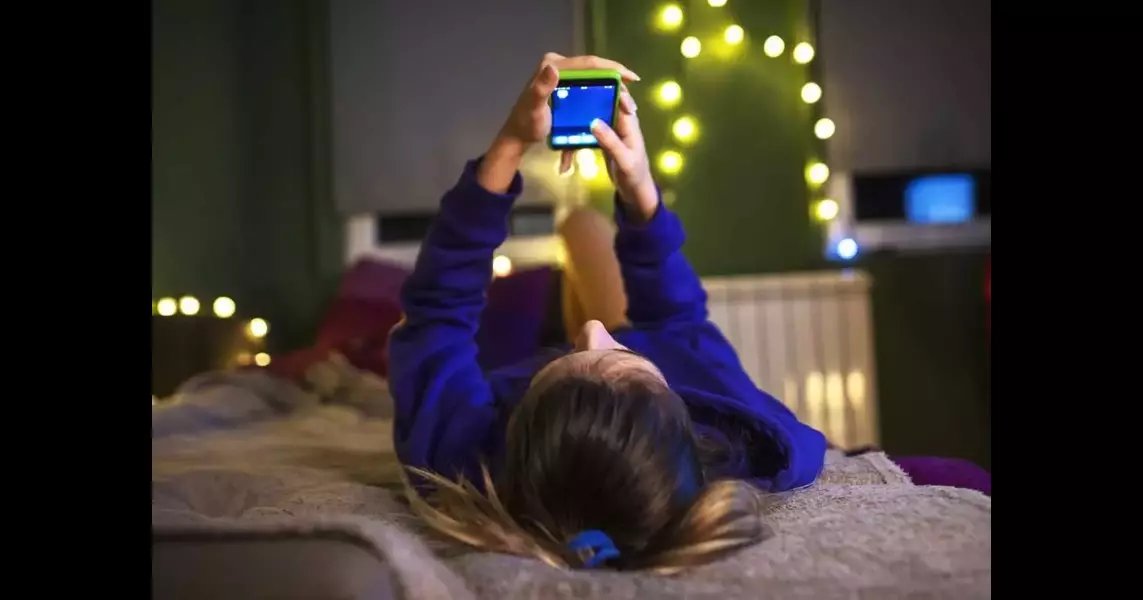Tweens, screens and sleep: How parents can help kids get their zzzzz’s

Unplugging for Better Sleep: The Surprising Impact of Bedtime Device Usage on Tweens
A new study has shed light on the significant impact that electronic device usage can have on the sleep patterns of tweens, those in the 11- to 12-year-old age range. The research, involving nearly 9,400 participants, reveals that the way these young individuals interact with their devices before bedtime can profoundly influence the quality and duration of their sleep.Unlock the Secret to Healthier Sleep for Tweens
The Prevalence of Tween Smartphone Ownership
The study found that a majority of the tweens involved, a staggering 72%, already owned their own cellphones. This widespread access to personal devices at such a young age highlights the importance of understanding the implications of their usage, particularly when it comes to sleep.The researchers delved into the specific ways in which tweens were using their electronic devices around bedtime. They found that even simple actions, such as silencing phone notifications, could have a significant impact on sleep patterns. Surprisingly, the study revealed that leaving phones on but silenced was associated with less sleep than turning the devices off completely. This suggests that the mere presence of potential disruptions, even if not actively engaged with, can still interfere with a good night's rest.
Furthermore, the researchers discovered that one in five tweens reported checking their phones if they woke up during the night. This behavior can lead to increased wakefulness and difficulty falling back asleep, further exacerbating the sleep challenges faced by this age group.
The Importance of Establishing Healthy Bedtime Routines
The study's findings emphasize the critical role that parents and caregivers play in helping tweens develop healthy sleep habits. The researchers recommend several best practices to promote better sleep:Firstly, they advise avoiding the use of any electronic devices, including smartphones, tablets, and computers, for at least an hour before bedtime. This "digital detox" period allows the brain to wind down and prepare for restful sleep.
Secondly, the researchers strongly encourage turning phones off completely at night, rather than simply silencing them. This eliminates the potential for disruptive notifications, vibrations, or lights that can interrupt sleep.
Additionally, the study highlights the importance of resisting the urge to check phones if one wakes up during the night. This behavior can lead to increased wakefulness and difficulty falling back asleep, further exacerbating the sleep challenges faced by this age group.
Perhaps most importantly, the researchers recommend keeping smartphones and other electronic devices outside the bedroom altogether. The study found that adolescents who followed this practice experienced more and better-quality sleep, a finding that persisted over the course of the year-long study.
The Broader Implications for Sleep and Well-being
The findings of this study have far-reaching implications for the overall health and well-being of tweens. Adequate, high-quality sleep is essential for cognitive development, emotional regulation, and physical growth during this critical stage of life.By establishing healthy bedtime routines and limiting electronic device usage, parents and caregivers can help ensure that tweens are getting the sleep they need to thrive. This, in turn, can have a positive impact on their academic performance, social interactions, and overall quality of life.
The researchers emphasize that the advice they provide applies not only to tweens but to adults as well. "After doing these studies, I have changed my habits," says Dr. Jason Nagata, the lead author of the study. "I used to have my phone off, but in the room. But now I try to put it outside the bedroom, and it has actually been more effective for me as well."
As technology continues to play an increasingly prominent role in our lives, it is crucial that we prioritize healthy habits and boundaries, especially when it comes to the sleep and well-being of our young people. The insights from this study offer a valuable roadmap for parents, caregivers, and tweens themselves to navigate the complex relationship between technology and sleep, ultimately paving the way for a healthier, more well-rested generation.